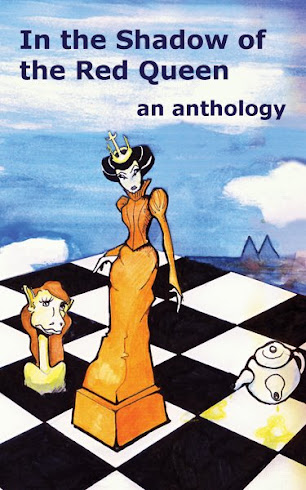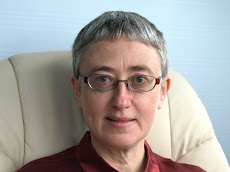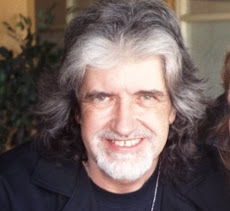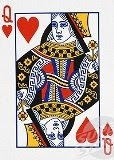Storms and Teacups
Wishes
What do you normally write?
Mostly short stories, published mainly in women’s magazines such as ‘The People’s Friend’, as well as stories and articles in Ireland’s Own, Leicestershire and Rutland Life, and the Leicester Mercury, among others. Even the occasional poem, which I enjoy as a change. I also had story in the previous Bridge House anthology, ‘Making Changes’.
Like many writers, my ultimate aim is to get into novels, and I’ve been writing a contemporary Lake District saga on and off for some time now. It’s presently on the back burner, though, as I tend to concentrate on short stories.
Tell us about the story you’ve had accepted and what inspired it.
‘Storms and Teacups’ is a seaside story set in a comfortable, slightly old-fashioned resort, about a young woman who feels stuck in a rut. It takes a crisis and the help of some unexpected new friends to learn what she wants from life.
The place I had in my mind’s eye when I wrote the story was a cross between Swanage and Lyme Regis, both in Dorset, though I can easily think of several little towns in Devon, Cornwall and Pembrokeshire that would fit the bill, and no doubt you can, too.
Swanage, especially, was one of my favourite childhood holiday spots. I loved the gentle feel of the town, the sheltered sandy beaches, and going riding among the Purbeck hills with fantastic views over Studland Bay. A couple of years ago I went back to Dorset with my own family and revisited my old haunts, including Swanage. Even thirty years on, it still retained much of its character. That night, with all the impressions still fresh in my mind, I started writing ‘Storms and Teacups’. Hopefully, everyone reading it will enjoy a breath of sea air.
‘Wishes’ is also set by the sea, but this time on the North Antrim coast of Northern Ireland – a total contrast.
My mother comes from Northern Ireland, and at the beginning of the Second World War was about to go to a teacher training college in Belfast. Because of the risk of bombing by the Germans, the college was relocated to Portrush, on the Antrim coast, which meant she spent her student days by the seaside. It also meant that, as well as visiting various Irish relatives, we also stayed a couple of times with one of her college friends in Antrim.
The beaches there are huge, sandy and wild. Apparently. if you can see Scotland in the distance, it means rain is on the way. We were lucky. Both our visits coincided with a heatwave. We went to a different beach every day – except the day we visited the Giant’s Causeway. I was ten at the time and, just like Kate in the story, unimpressed at the idea of wasting a sunny day that was tailor-made for spending on the beach. Still, I made a wish in the Giant’s Chair, and nowadays bore everyone by pointing and saying ‘I’ve been there’ whenever there is so much as a glimpse of the place on television.
Naturally, it’s a great setting for a story. So, many years later, this story was born, about an awkward, stubborn girl who grows up still to be awkward and stubborn, even if she thinks she’s changed. You’ll have to read it to see if she’s any wiser at the end, and to find out what she wished for.
What made you become a writer?
I’ve always read a lot, and enjoyed making up stories as a child, especially when I was going through my ‘horsey’ phase. At that time, I got 40p a week pocket money, exactly the right amount to buy a paperback by Ruby Ferguson or one of the Pullein-Thompson sisters to devour over the weekend. They were my substitute for a pony, as I knew I’d almost certainly never get a real one. Many of my stories involved girls rescuing humble, preferably down-trodden ponies, and going on to win the show-jumping class at the local gymkhana!
During my teens I was an inveterate letter writer. I had penfriends all over the world and exchanged long letters with school friends during the summer holidays. I suppose now we’d all be on Bebo – more limiting in so many ways.
As ‘real life’ took over, it was only when I was lucky enough to stay at hone to bring up my daughters that I started to write again, but that was the beginning of a long learning process. Joining the local writers’ group helped, if only to confirm I wasn’t the only ‘mad’ person around. Now I’m published in various magazines and anthologies, am current chairperson of that group, and a member of another, and hope to keep pushing on.
I don’t think anything ‘made’ me ’become’ a writer. There’s something settling about writing, even when it’s not going well. It helps me forget about problems, just for a while, and even cures headaches! If I was Peanuts, I’d say happiness was a new A4 notebook, a favourite pen and a mug of coffee. And chocolate.
Which writers do you admire?
Too many to put here. The Brontes were a huge early influence, as were Thomas Hardy, Graham Greene and Jane Austen, though the first ‘grown-up’ novels I read and enjoyed were the Rogue Herries books by Hugh Walpole. Nowadays I seize on anything by Anne Tyler or Anita Shreve, but I also love Daphne du Maurier, Maeve Binchy, Jonathan Coe, Colm Toibin, Sarah Waters, Kate Morton… The list just goes on, and the to-read pile spreads under the bed as if it had a life of its own. At the moment I’m reading ‘The Secret Scripture’ by Sebastian Barry, and have to drag myself away from it.
Do you have a favourite place for writing?
As I write initial drafts in longhand, I can write in different parts of the house. But I’ve sold stories that I’ve written on the shores of Coniston, and even sitting in the car in a Tesco’s car park. But it has to be quiet, or somewhere I can create my own cocoon. I can’t concentrate with the television on, for example.
What is your writing routine? Do you have to fit it around your day job?
I usually have several stories on the go, all at various stages. I’ll work fairly solidly at completing a first draft, then put it away and work on something else. It’s surprising what you notice when you look at a story with a fresh mind.
What do you hope to achieve through your writing?
Hopefully to keep improving and make a semi-reasonable income out of doing what I love, and maybe even one day find myself among some of the names I admire. I already know several established novelists through writers’ groups, etc, so I know it’s difficult but not impossible.
Anything else?
Just an update on the pet front for those who read ‘Making Changes’, in that we are now down to one elderly rabbit and a not quite so juvenile cat.










No comments:
Post a Comment